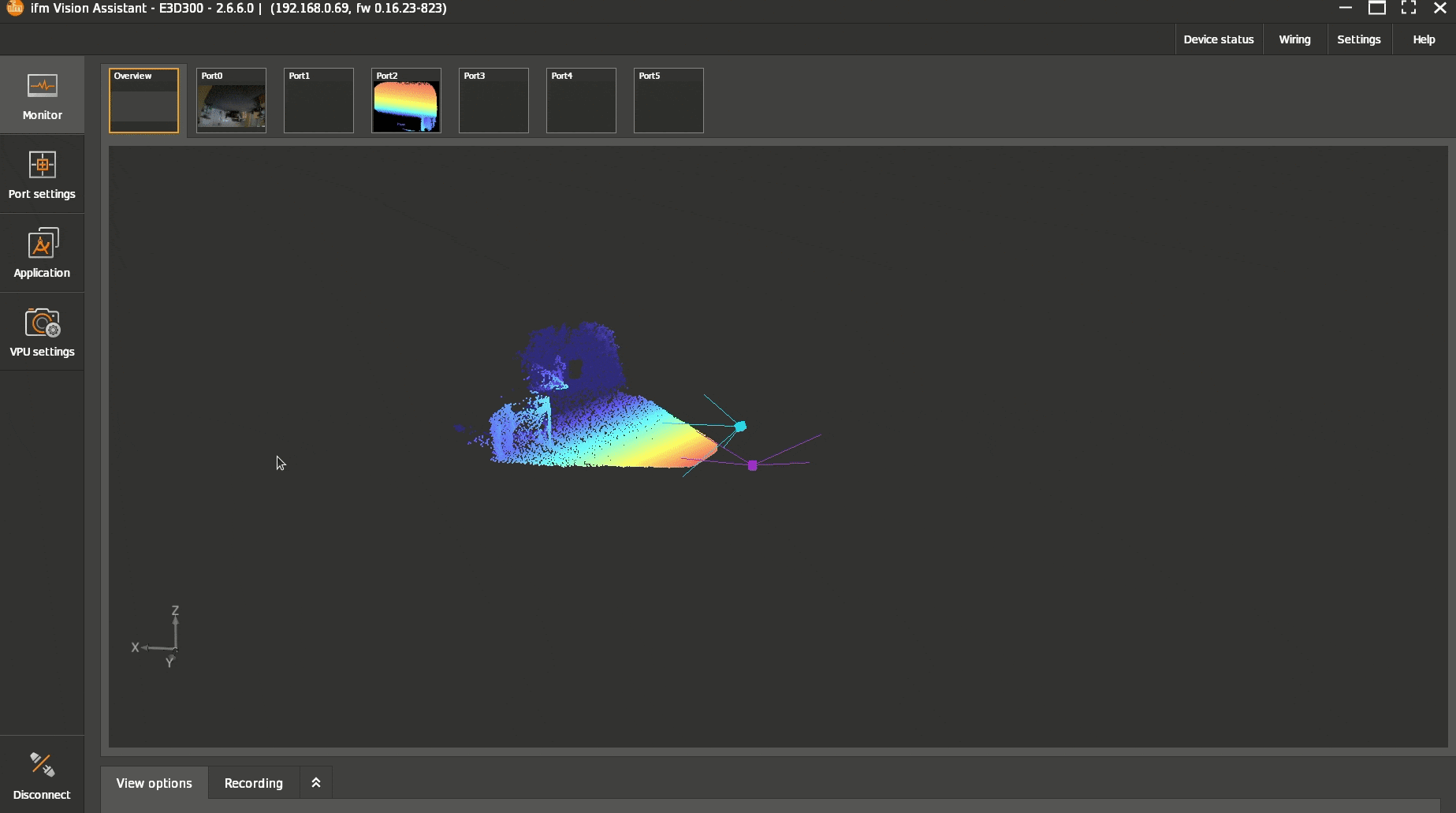Getting started with ODS
Prerequisites
It is expected that there is a running system. Please refer to the unboxing section.
A typical procedure would be:
connect M04239-VPU with heads and power supply
boot-up the system
connect with iVA
verify that live images are received
Step 1: Extrinsic calibration
The parameters to transform the camera coordinate system into the user coordinate system are called extrinsic calibration parameters. Without the extrinsic calibration parameters ODS will not work properly. For a tabletop setup, from which accurate results are not expected, the calibration parameters should be set to the following values:
transX: 0
transY: 0
transZ: 0.1
rotX: -1.57
rotY: 1.57
rotZ: 0
Step 2: Using iVA for ODS
These are the steps to start ODS in the iVA:
Instantiate the ODS Application
open application-tab
click on the + - symbol -> a list of applications should appear
click on ODS -> ODS parameters should appear
! Oops, that didn’t work ! –> verify a M04239 VPU with ODS license is used.
Configure ODS parameters
(this step is not needed for a table top demonstration)
Start ODS
set ODS-state to “RUN” -> the live occupancy grid should appear
! Oops, that didn’t work ! –> change the extrinsic parameters to the suggested values above.
Play with display
the application tab only shows the occupancy grid (white grid pattern marks occupied areas)
change to monitor tab -> the point cloud and the occupancy grid are shown
watch the video:

Note
For better visualization of the point cloud when using ODS, use the Frame Filter from the View Options in the Monitor window. The frame filter does not change the Mode for any Ports as this is only used for visualization purposes.
